Acts - Chapter 5
Chapter 5 brings out the story of Ananias and Sapphira and how they cheated God by lying to the Holy Spirit. The chapter continues with Peter and some of the disciples are arrested again. This time, the punishment for witnessing the Gospel will be more harsh.
The Acts of the Apostles
Chapter 5
Lying to the Holy Spirit
Chapter 5 continues right where chapter 4 leaves off, revealing Barnabas selling a piece of property and donating all the money from its proceeds to give to the needs of the people in the early church.
As we enter into chapter 5, we learn of a man and his wife who also sold a piece of property and attempted to gives its proceeds in the same manner as Barnabas.
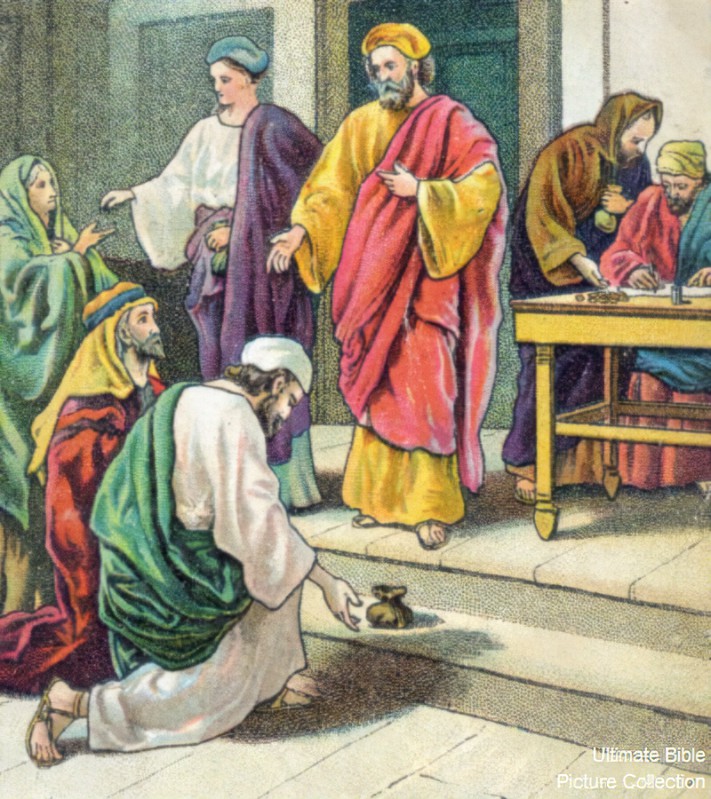
Acts 5:1 But a certain man named Ananias, with Sapphira his wife, sold a possession (property). 2 And he kept back part of the proceeds, his wife also being aware of it, and brought a certain part and laid it at the apostles’ feet. 3 But Peter said, “Ananias, why has Satan filled your heart to lie to the Holy Spirit and keep back part of the price of the land for yourself? 4 While it remained, was it not your own? And after it was sold, was it not in your own control? Why have you conceived this thing in your heart? You have not lied to men but to God.”
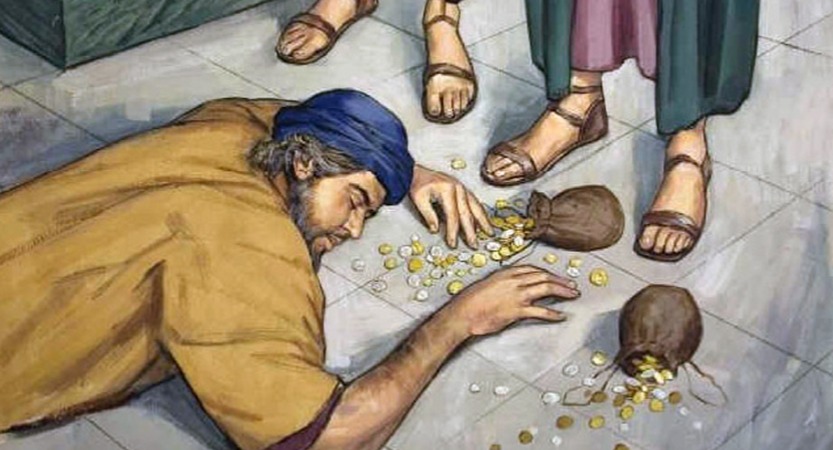
5 Then Ananias, hearing these words, fell down and breathed his last. So great fear came upon all those who heard these things. 6 And the young men arose and wrapped him up, carried him out, and buried him.

Barnabas, as probably one of the seventy followers of Jesus while He ministered on the earth, had become a well-known and recognized leader in the early Church. He was called the "Son of Encouragement," being highly respected among other believers.
We read in the last chapter that Barnabas sold a piece of property and gave its proceeds to the Apostle Peter to have the monies distributed to those in need among the company of believers. In this chapter we now learn of Ananias and his wife Sapphira, who supposedly did the same thing. There was, however, a huge heart difference in the two presentations.
- Barnabas gladly laid all the monies he received from the selling of his property and laid the proceeds at the feet of Peter. His heart was to help those in need.
- Ananias, on the other hand, laid at the feet of Peter only a portion of the monies he received from the sellling of his property, giving the appearance that he was as generous as Barnabas, wanting the respect of the apostles and those around him. The sin wasn't in giving only a portion, but in secretly hiding the fact that he held a portion back, giving the illusion that he gave it all. In other words, his motive for giving was to receive recognition and praise instead of giving out of a heart wanting to help people in need.
- Sapphira, Ananias'wife, also knew of the deception. Her silence spoke out that she agreed to this deception. We will see that her fate became the same as her husband's.
Peter made it clear that Ananias and Sapphira lied not only to the Holy Spirit, but they lied to God because the Holy Spirit and God are One with Christ.

Was Ananias' sin worthy of death? Did God have a purpose for his death? Those are questions we cannot answer. His death was done by the hand of God, and only God knows the heart of all men, so for us to judge God, is something that we cannot do, but simply have to trust that God knew exactly what needed to be done.
Upon Ananias' death, fear came upon the people - recognizing that it is a serious offense to lie to and before God. The Greek meaning here for the word "fear" is to be "afraid." So we know the people became afraid of what God did to Ananias and may do the same to them if they too lied to Him.

7 Now it was about three hours later when his wife came in, not knowing what had happened. 8 And Peter answered her, “Tell me whether you sold the land for so much?” She said, “Yes, for so much.”9 Then Peter said to her, “How is it that you have agreed together to test the Spirit of the Lord? Look, the feet of those who have buried your husband are at the door, and they will carry you out.” 10 Then immediately she fell down at his feet and breathed her last. And the young men came in and found her dead, and carrying her out, buried her by her husband. 11 So great fear came upon all the church and upon all who heard these things.
Ananias' wife Sapphira returned to the disciples about three hours after her husband, not having any idea what happened to him. She too was confronted by Peter, giving her a chance to redeem herself; however, she continued with the deception that her and Ananias had conceived earlier. An such, she was also testing to see how far she could lie to the Holy Spirit and get away with it. As a result, she too had to face her consequence for lying and fell down dead in front of everyone present.
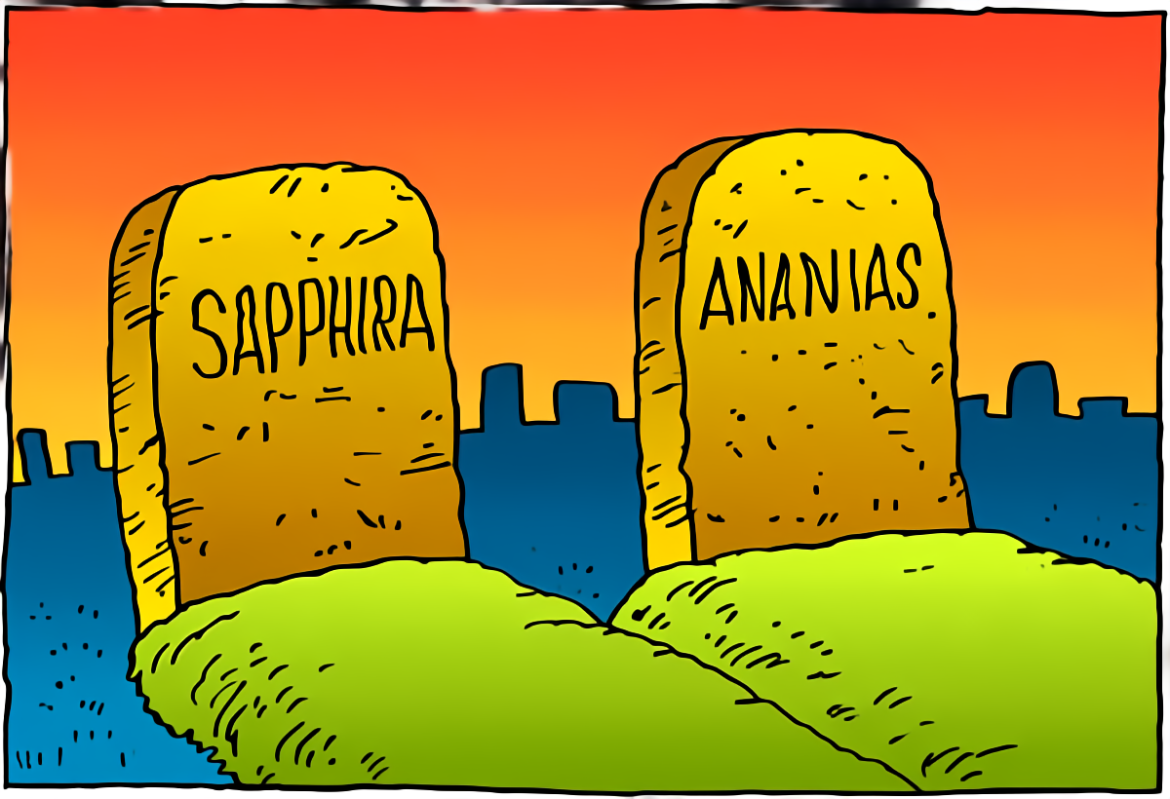
Great fear came upon everyone of the Church as well as anyone who heard about the deaths of Ananias and Sapphira, for they were all afraid of what might happen to them if they did the same thing.
Personal Observation
While I can't verify with Scripture, I do have a couple of thoughts on this situation that seems to be worthy of repeating. I wonder if familiaririty, complacenty,and carnality hadn't entered into the Church over the past two years since Pentecost and some of the people thought they could get away with testing God and still live in their carnal ways.

Another thought I have is one of leadership. We know that Barnabas was probably one of the seventy disciples (not the twelve apostles) who followed Jesus while He ministered upon the earth. As we will see in future chapters Barnabas had become a strong leader within the Church, being highly respected by the people. Was this a position that Ananias wanted to attain - so much that he was he willing to lie to God in his giving to obtain that respect from the apostles and disciples? The Scriptures tell us that "pride" comes before the fall (Prov 16:18), and this verse and principle certainly could fit that situation!
Continuing Power in the Church
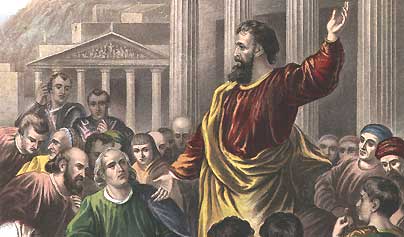
12 And through the hands of the apostles many signs and wonders were done among the people. And they were all with one accord in Solomon’s Porch. 13 Yet none of the rest dared join them, but the people esteemed them highly.
Solomon's Portico (Porch) had become a regular meeting place for Jews and believers to meet to pray and just be with other people as thousands of people met regularly. There in Solomon's Porch the apostles' ministered signs and wonders; however, the community of believers avoided joining them for fear of being arrest. They highly esteemed their ministry, being in one accord to what the apostles were doing, but they remained onlookers as the apostles moved around to other parts of the temple grounds to reach those who did not frequent Solomon's Porch, such as the women and Gentiles.
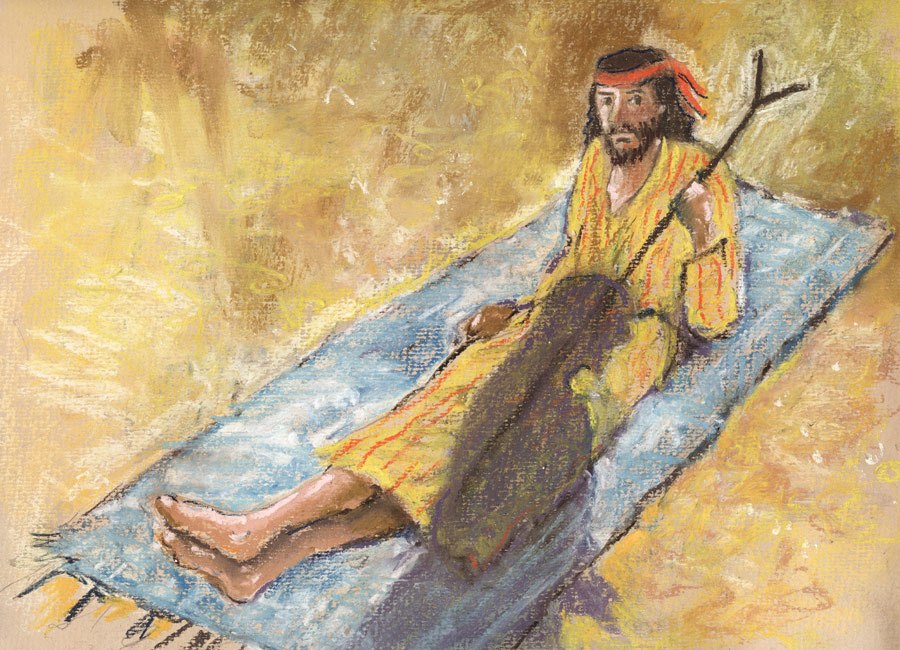
14 And believers were increasingly added to the Lord, multitudes of both men and women, 15 so that they brought the sick out into the streets and laid them on beds and couches, that at least the shadow of Peter passing by might fall on some of them. 16 Also a multitude gathered from the surrounding cities to Jerusalem, bringing sick people and those who were tormented by unclean spirits, and they were all healed.
Because of the many miracles, signs and wonders, people brought heir sick on beds and mats to the apostles to be healed. Some who were sick even tried to pass under the shadow of Peter hoping to be healed. Many sick in body and tormented by unclean spirits came from other cities to be healed, and they were all healed. As such, multitudes of men, women, and even Gentiles came into the Kingdom of God.
Masses of people followed the apostles, which again angered the members of the Sanhedrin Council - especially those of the sect of the Sadducees, of which nearly every member of the Council was a part of that sect.
Apostles Imprisoned Again
17 Then the high priest rose up, and all those who were with him (which is the sect of the Sadducees), and they were filled with indignation, 18 and laid their hands on the apostles and put them in the common prison.

The temple guards came out again, probably on trumpted up charged on the insistence of the Sanhedrin Council to have Peter and those preaching with him arrested. As was done before, the guards dragged them off to Antonio's Prison. Here we see a picture of an arial view of the prison. We can see it was attached to the far end of the temple.
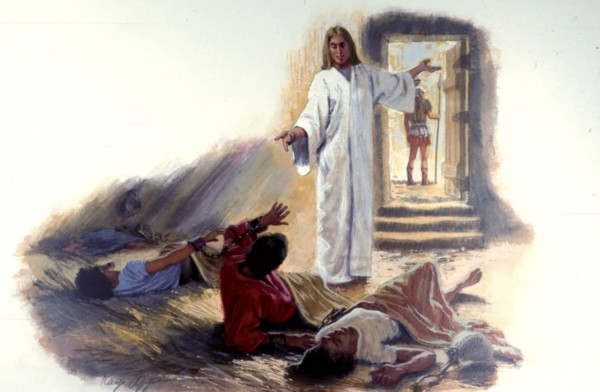
19 But at night an angel of the Lord opened the prison doors and brought them out, and said, 20 “Go, stand in the temple and speak to the people all the words of this life.”
What a surprise to Peter and his companions, and what a miracle of God this was.

21 And when they heard that, they entered the temple early in the morning and taught.
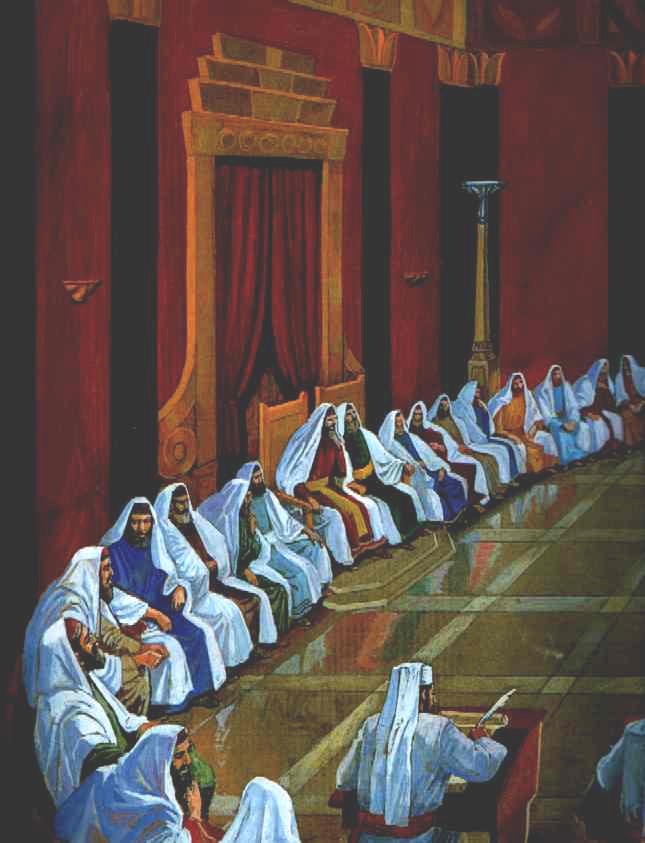
But the high priest and those with him came and called the council together, with all the elders of the children of Israel, and sent to the prison to have them brought. 22 But when the officers came and did not find them in the prison, they returned and reported, 23 saying, “Indeed we found the prison shut securely, and the guards standing outside before the doors; but when we opened them, we found no one inside!”
In the morning, they were to go back to the temple grounds, probably to Solomon's Porch and witness Jesus to the people again. The angel then led them out of the prison - right past the unaware guards, and the apostles returned to their homes where they were staying. At daybreak the next morning Peter and those ajoining apostles returned to the temple grounds and did as commanded by the Lord. They continued to do signs and wonders and preaching on the Kingdom of God with the purpose of winning many to the saving grace of our Lord Jesus Christ.
Meanwhile, the Sanhedrin Council of seventy elitist men, led by the high priest met again to judge these apostles. Instruction was given to the officers have the Apostle Peter and the other apostles with him to be brought out from the prison to face the Council in court once again. Instead, the officers came back in shock saying the prison doors were securely shut, with guards standing on guard, but when the prison door was opened, the cell was empty.
24 Now when the high priest, the captain of the temple, and the chief priests heard these things, they wondered what the outcome would be. 25 So one came and told them, saying, “Look, the men whom you put in prison are standing in the temple and teaching the people!”
Perplexed on how they could have escaped out of the prison during the night with the cells guarded and locked, these elitists of the Sanhedrin Council murmured amongst themself saying "when was all this going to end?" Then someone entered the court to say that those who were put in prison the day before were back on the temple grounds teaching their ways to the people again.
26 Then the captain went with the officers and brought them without violence, for they feared the people, lest they should be stoned. 27 And when they had brought them, they set them before the council. And the high priest asked them, 28 saying, “Did we not strictly command you not to teach in this name? And look, you have filled Jerusalem with your doctrine, and intend to bring this Man’s blood on us!”
The captain of the guard, followed by several Sadducees went out where they thought Peter and the apostles may be preaching and attempted to quietly bring them back to the Sanhedrin Council quarters for fear the people would stone them. They knew that if they used force, the people could get so riled up to where they could actually throw rocks and stones at the guards and the Sadducees. Peter and the other apostles quietly and willingly went with them, knowing the tenseness of the moment, as they purposed to be an godly example to the people.
Again, facing the full council of the Sanhedrin, who had been impatiently awaiting for their return, Peter again heard these words: "Did we not strictly command you not to teach in this name? And now you have filled all of Jerusalem with your teachings, claiming we are responsible for His death!"
29 But Peter and the other apostles answered and said: “We ought to obey God rather than men. 30 The God of our fathers raised up Jesus whom you murdered by hanging on a tree. 31 Him God has exalted to His right hand to be Prince and Savior, to give repentance to Israel and forgiveness of sins. 32 And we are His witnesses to these things, and so also is the Holy Spirit whom God has given to those who obey Him.”
Peter again spoke up, with the other apostles echoing the same words, repeating the same reason as he did the last time he faced the Sanhedrin Council saying "we must obey God rather than men." Peter then continued on: "The God of our fathers, meaning the God of Abraham, Isaac, and Jacob, whom we all serve, brought Jesus to us, whom you murdered by crucifying Him on a cross. Our God, however, not only raised Him from the dead, of which we can testify, He now sits exalted at the right hand of God on His throne."
33 When they heard this, they were furious and plotted to kill them.
Gamaliel’s Advice
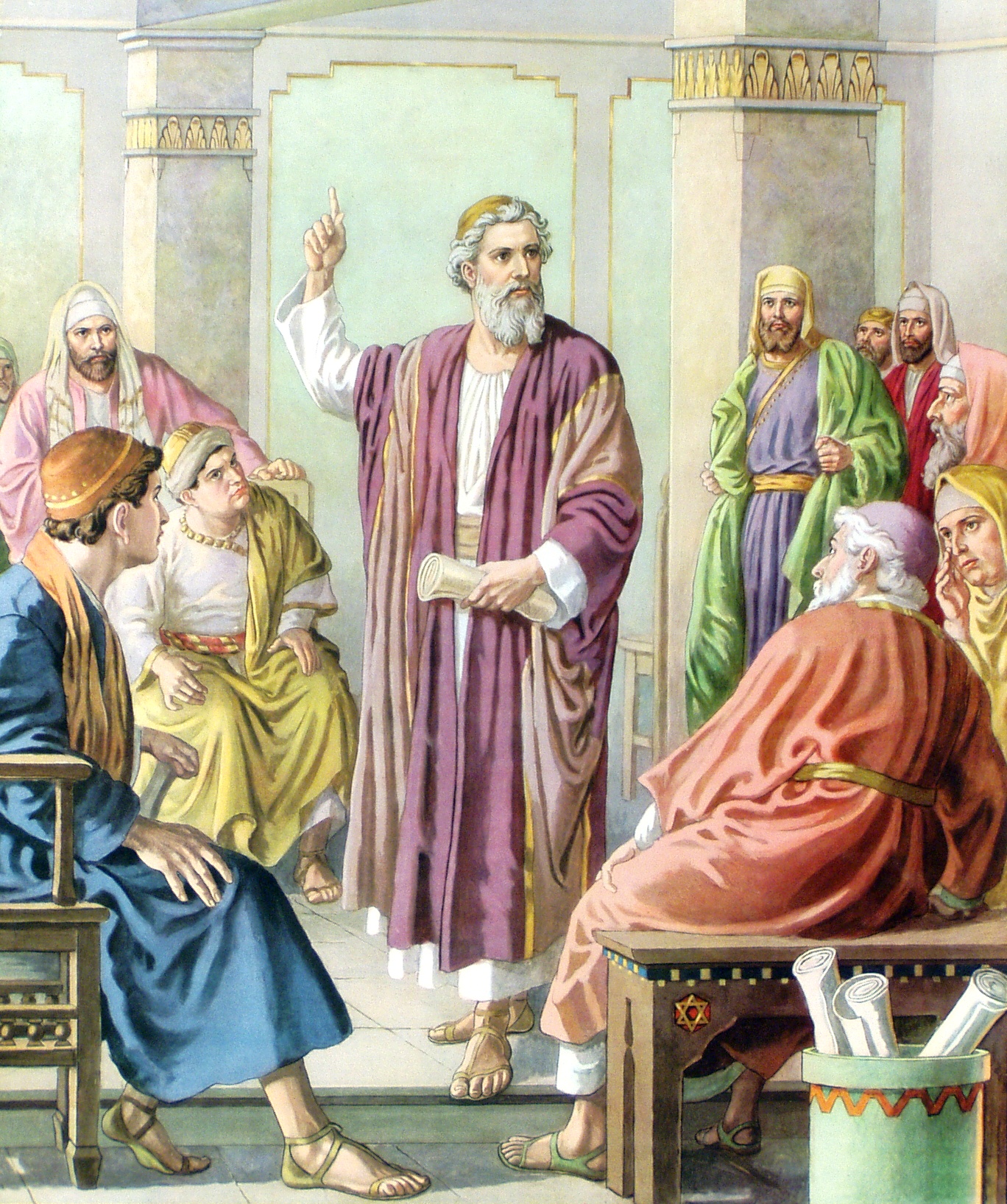
34 Then one in the council stood up, a Pharisee named Gamaliel, a teacher of the law held in respect by all the people, and commanded them to put the apostles outside for a little while.
Gamaliel, a Pharisee, known in Jewish history as Gamaliel the Elder, carried the title of top Rabban, not Rabbi. Rabban was the highest title you could give to a teacher of the law. Gamaliel was the grandson of Hillel the top teacher of the law in his day and was once the head of the Sanhedrin Council. Gamaliel was highly respected and held a great reputation by the whole Jewish Sanhedrin Council, including the Sadducees. For those training to become a Pharisee rabbi, Gamaliel was the best in his day. We will learn as we learn about the Apostle Paul (Saul of Tarsus) that he, as a young student (talmud), he was trained under Gamaliel, pointing out that Saul of Tarsus came from wealth and prestige, and well as carried great intelligence to be considered worthy to sit under Gamaliel the Rabban. Remembering that the Pharisees, unlike the Sadducees, believed in the resurrection of the dead and was awaiting the time of the coming of the Messiah, but, rejected Jesus as their Messiah to the Jewish people caused the Pharisees not to be as harsh as the Sadducees on the Messianic community of believers in Jesus.
Gamaliel then commanded Peter and the other apostles to go into another room so he could talk alone to the Council of 70 men.
35 And he said to them: “Men of Israel, take heed to yourselves what you intend to do regarding these men. 36 For some time ago Theudas rose up, claiming to be somebody. A number of men, about four hundred, joined him. He was slain, and all who obeyed him were scattered and came to nothing. 37 After this man, Judas of Galilee rose up in the days of the census, and drew away many people after him. He also perished, and all who obeyed him were dispersed. 38 And now I say to you, keep away from these men and let them alone; for if this plan or this work is of men, it will come to nothing; 39 but if it is of God, you cannot overthrow it—lest you even be found to fight against God.”
The point being, nothing was done to punish these men. Their movements just fizzled out. Gamaliel stressed, that these apostles of Jesus should just be left alone. If what they are doing is of man, it will all fall to nothing just like that of Theudas and Judas of Galilee. If it is of God, however, there would be nothing they could do to fight against God. So, again, leave them alone.
40 And they agreed with him, and when they had called for the apostles and beaten them, they commanded that they should not speak in the name of Jesus, and let them go.
The Council couldn't help but agree with Gamaliel, for what he said was true, and wisdom would be to leave them alone; however, they ended up compromising by having them scourged, which was a common practice of punishment by the Sanhedrin Council. Peter and the other apostles were brought back in and again and commanded to never speak the name of Jesus in public. To throw more fear and intimidation upon them, in an effort to discourage them from preaching, they were publicly scourged as their punishment.
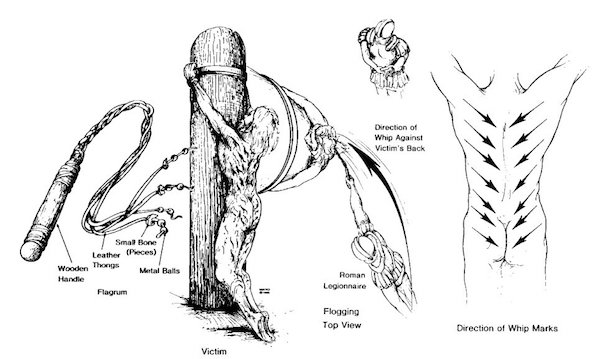
Public scourging unto death included flogging 40 lashes which generally killed a person. Many times 39 flogs were given, which the victim didn't die, but came close to it. The Sanhedrin Council could determine how many floggings a victim could have. In this instance, Scripture does not tell us.

41 So they departed from the presence of the council, rejoicing that they were counted worthy to suffer shame for His name. 42 And daily in the temple, and in every house, they did not cease teaching and preaching Jesus as the Christ.
As painful and humiliating as it was to be publicly flogged, Peter and the apostles on trial went away rejoicing that they were counted worthy to suffer for the sake of Jesus. It didn't stop them from continuing to go to the temple grounds and house to house teaching and preaching Jesus as the Christ.
This ends chapter 5
Click here for Acts - Chapter 6
Pastor Joyce Erickson
Believersbibleschool.com







